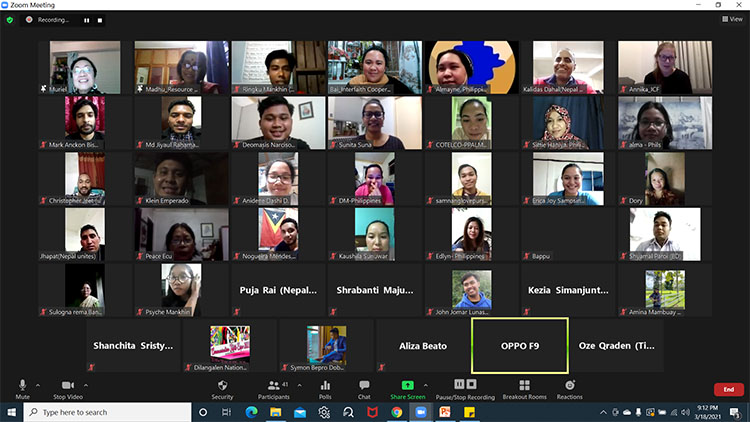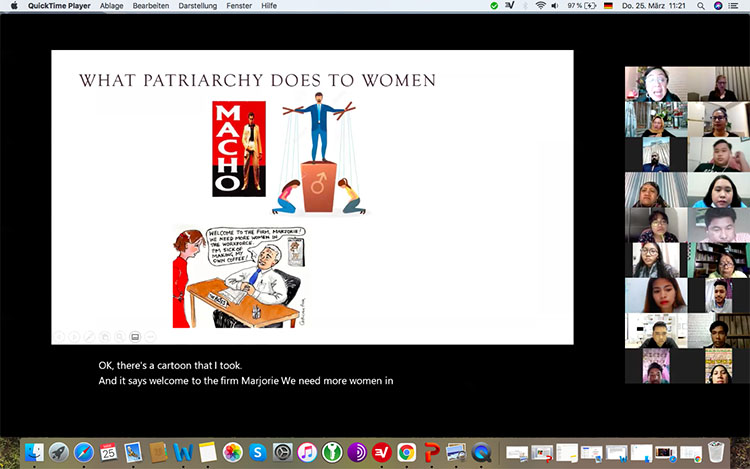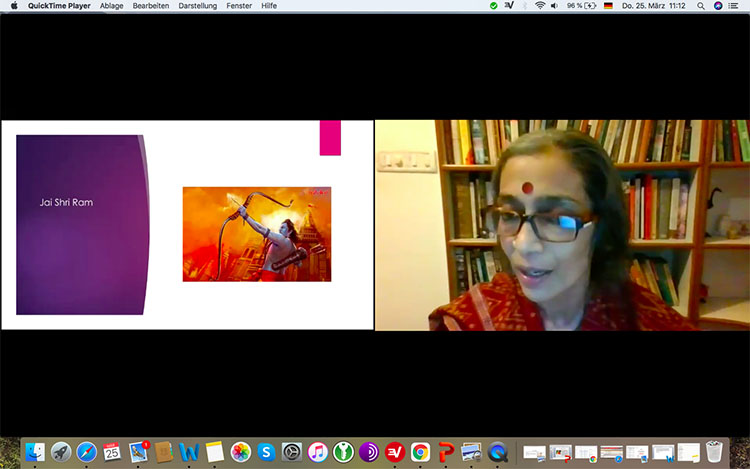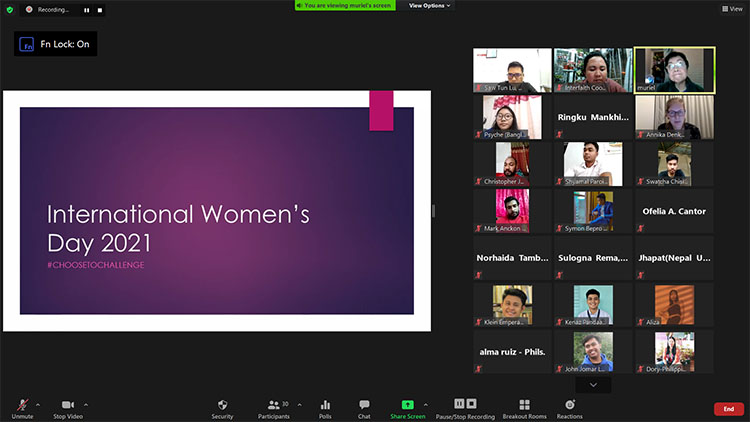Religion Does Not Exist In Isolation
Last Updated (Wednesday, 31 March 2021 15:07)
Uncovering Patriarchy, Androcentrism, and Misogyny in the Sacred Texts
 |
 |
ICF is currently observing women’s month with a series of virtual sessions once a week on Patriarchy, Androcentrism, and Misogyny in the Sacred Texts. Each session focuses and examines the sacred texts of Christianity, Islam, Hinduism, and Buddhism, respectively. So far, the first three sessions took place with a respective follow-up discussion the week after.
The first of the four sessions took place on March 4th with a follow-up discussion on Monday 8th on International Women’s Day. During the first session, ICFs very own Dr. Muriel Orevillo-Montenegro took the participants on a journey to explore the texts of terror in the Bible. After introducing the participants to the words Patriarchy, Androcentrism, and Misogyny, Dr. Muriel Orevillo-Montenegro gave insights on the circumstance of the bible arguing that it is crucial to understand the broader context to understand the sacred text. Or as she puts it: “We must interrogate the text, ask the text. Men wrote the text. It did not suddenly appear out of nowhere. It comes to us from the perspective of the writer. Writing is a political act, whether we like it or not. In any story, you will take the angle, depending on what your interest is. To make sense of the text: interrogate it! Why was it written? When and by whom?” Taking these questions into account the participants had the opportunity to listen to some texts of terror in the bible and discuss with their peers the implications those have on our current societies. What shall we take away from these texts of terror? According to Dr. Orevillo-Montenegro, it is up to each one to take a deeper look into their sacred texts, acknowledge the texts of terror with their enslaving and marginalizing dimensions and not take them as authoritative. Moreover, she asked the participants to identify those aspects that are liberating and lift them. The bible can be read and interpreted differently by different people and there is not one single truth.
On March 11th the second session on Islam took place. Ph.D. candidate Mustaghfiroh Rahayu from Indonesia explored the Qur’an focusing on the question of whether women and men are equal before Allah. The participants were given Amina Wadud’s book, Qur’an and Woman: Rereading the Sacred Text from a Woman’s Perspective as material to familiarize themselves with and understand the topic. During the session, Ms. Mustaghfiroh Rahayu first acknowledged what the participants did or did not know about the Qur’an and went on to introduce the sacred text in more detail by also focusing, like Dr. Muriel before her, on the time and context in which it was written and pointed out that there is no absolute truth. She said that it is particularly important to ask the following questions when reading the Qur’an with regards to gender: “What is the implication of using gender-specific, gender-inclusive or gender-neutral language in the Qur’an? Is it a reflection of the time? Or is it a divine intention?” As with the Bible, the Qur’an was written by men and thus inherently includes a male perspective. She focused the main part of her presentation by taking a deeper look into the text and dissecting words and their meaning. A starting point was the account of the creation of women in the Qur’an. She explained that careful reading of the text will show that it puts women and men on equal terms. She ended her presentation by stating the Islamic declaration on women’s full humanity.
The third session took place on the 18th of March. Ms. Madhu Bhushan, a feminist from India, talked about Hinduism especially with a focus on the Hindu goddesses. She first described her journey with the faith she was born into and focused on the intertwining of politics, patriarchy, and faith. She linked the interpretation of the sacred texts and faith to the British colonization of India and their influence in creating a patriarchal society. The British prescribed focusing on just one Hindu text out of the many to promote certain rules to live by, resembling the ideals of the British patriarchal society at the time. She further explained the current political situation, with the rise of Hindu nationalism and the changes this has brought over the past decades to the interpretation of Hinduism, and the implications for the women. As an example, she described the complex stories and different depictions of the goddesses and gods in Hinduism. She explained that many goddesses were once portrayed as independent and fierce, fighting for justice, and were not subservient to the male gods. This has changed in the past years as politics shifted. She calls the phenomenon the domestication of goddesses from being fierce and independent to docile housewives. This shift in turn has many implications for the kind of lives that Hindu society allowed Hindu women to lead. However, it is not only the portrayal of goddesses’ images that changed to promote ideals that fit with the current political interests. The change also shifted the images of the gods. Once portrayed to encompass the balance between feminine and masculine in their being, the gods are now shown as fighters with solely masculine features. Ms. Bhusan’s talk provided especially good insights on how religion, in this case, Hinduism, is used by the people in power to meet their interests.
 |
 |
An important notion that one can gather or take away from the first three sessions is that no religion exists in isolation. Religion is always defined by outside circumstances, by the people who have the power to interpret the sacred texts and create norms and rules accordingly. Moreover, it is important to consider the context where the authors wrote the sacred texts. Overall, the sessions challenged all participants to thoroughly engage with their respective religions to identify the harmful dimensions they encompass and create for women or other marginalized groups. It is also up to each one of us to uncover the ties between the patriarchal societies we live in and the role religion plays.
Annika Denkmann
BftW Seconded Personnel





